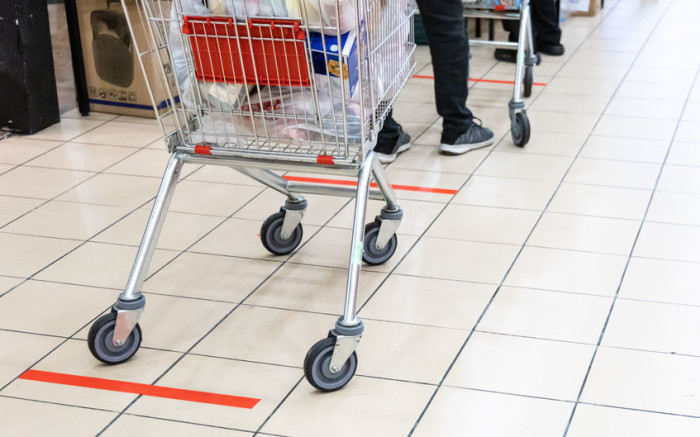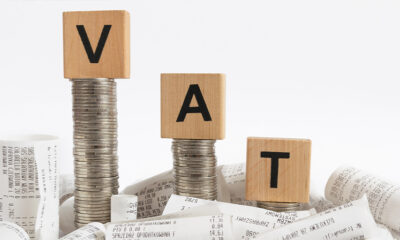News
Why Bone-In Chicken Won’t Make South Africa’s VAT-Free List: What That Means for Your Grocery Bill

For many South Africans hoping to see more affordable essentials on grocery shelves, this week brought sobering news. Despite growing calls from citizens, political leaders, and industry groups, the National Treasury has confirmed it won’t be expanding the VAT-free food basket — and bone-in chicken, one of the most demanded items, is officially off the table.
The message came during a budget debate where the finance department made its position crystal clear: adding more goods to the VAT zero-rated list, without an accompanying VAT hike, could do more harm than good.
Let’s unpack why this decision matters, and what it means for struggling households trying to stretch their food budgets.
How We Got Here: A Plan That Never Hatched
Back in February and March, Finance Minister Enoch Godongwana suggested expanding the list of VAT-free items — those basic foods exempt from the country’s 15% Value-Added Tax — as a way to cushion low-income families from a proposed VAT increase.
That plan included the possibility of zero-rating chicken feet, organ meats, canned vegetables, and dairy blends. At the time, it looked like a small win in the fight against rising food prices.
But then the VAT hike was scrapped.
And with that, so too was the justification for keeping an expanded food basket.
The Treasury now says that without the extra tax revenue from a VAT hike, expanding the basket would put serious pressure on the national budget, which is already under strain. The extension, they argued, was always meant as a counterbalance — not a standalone solution.
Bone-In Chicken: The Star That Never Got Its Spotlight
Of all the items pushed for inclusion, bone-in chicken was arguably the biggest crowd favorite. It’s cheap, versatile, and widely consumed across the country — a staple in countless South African homes.
So why not include it?
According to Treasury, it’s not that simple. Including just one kind of meat without doing the same for others would seriously distort the market. If bone-in chicken gets cheaper due to VAT removal, consumers will naturally shift toward it, forcing prices up in the long term and leaving local meat producers in a lurch.
A 2024 report by the Red Meat Association backed this up. It modeled several scenarios where only certain meats were zero-rated. The results? Market chaos. Demand spikes. Price wars. And imports flooding in to meet the shortfall, squeezing local producers even harder.
The conclusion was blunt: unless all meats are VAT-free, none should be. And making all meats tax-free? That’s a financial hole the country simply can’t afford to fall into.
The Bigger Picture: A Blunt Tool in a Sharp Crisis
The Treasury didn’t mince words in its explanation. Expanding the VAT-free list is a “blunt tool” for helping the poor. While it might lower prices temporarily, it also benefits wealthier households — essentially giving tax breaks to everyone, not just those who need them most.
Their alternative? Targeted spending. Think social grants, food vouchers, or subsidies aimed directly at low-income families. These approaches, they argue, are not only more efficient but also more equitable.
Still, many South Africans are left wondering what relief — if any — is coming.
With inflation biting and grocery prices steadily rising, the hope for a more generous VAT-free basket was a glimmer of light. Now, that light has dimmed, replaced by the cold facts of fiscal constraint.
Final Numbers: Billions at Stake
Let’s put this into perspective. Treasury estimates that expanding the VAT-free food list, even modestly, would cost the country around R4.9 billion in lost revenue.
Without the offset of a VAT hike, that’s a shortfall the government can’t ignore. In an economy already grappling with debt, service delivery gaps, and sluggish growth, every rand matters.
And in this case, that means your next pack of chicken wings or tin of peas probably isn’t getting any cheaper.
So What Now?
For South African households battling to put food on the table, this decision may feel like a blow. But it’s a reminder of how complex — and interconnected — economic policies really are.
If there’s one silver lining, it’s that the government isn’t turning its back entirely. Treasury is pushing for more focused support systems, aimed directly at the people who need them most.
Still, it’s up to all of us — from community leaders to advocacy groups to everyday citizens — to keep pressing for smarter, more effective ways to tackle food insecurity.
Let’s keep the pressure on, and push for policies that feed not just the market, but the people.
{Source: BusinessTech}
Follow Joburg ETC on Facebook, Twitter , TikTok and Instagram
For more News in Johannesburg, visit joburgetc.com



























